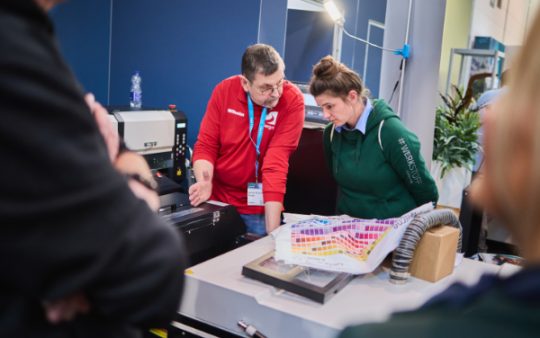Too good for the bin

Published on 02.04.2020
Every year, around five million garments are discarded throughout Europe, of which 1.1 million are disposed of in Germany alone. As a result, an EU waste directive has been put in place stipulating that old textiles must be collected separately throughout the continent as from 2025. This means they may no longer merely disappear into municipal waste for landfill or incineration.
The new directive attaches particular importance to recycling textiles. However, most textiles that end up in municipal waste today tend to be made of mixed fabrics. Separating them efficiently is one of the greatest recycling challenges there is. Numerous research initiatives are already working on solutions to the problem.
Austrian scientists have now delivered a promising approach in a joint project with the Technical University in Vienna, the University of Natural Resources and Life Sciences in Vienna and the Montanuni Leoben, together with partners from industry. The scentists have managed to separate the mixed fabrics into the following components: polyester and sugars. By adding special enzymes it is possible to break the cotton contained in mixed fabrics down into sugar. The plastic fibres can used to make new yarn, while the sugars can be used to make high-quality drinking bottles, for example. The next step is to develop the process so far that it can be used on an industrial scale.
Another way of reducing harm to the environment is to keep on wearing clothes for longer. The longer a product remains in the cycle, the less costs are generated in the fields of disposal, transportation and processing.
Second-hand operations would like to see more support from the state. The initiative Second Hand vernetzt e.V. has called for the removal of VAT on sales of second-hand products. This would provide major relief to shops that sell second-hand clothes, for example, helping them to secure their existence in the future as second-hand businesses have to rely on small profit margins, despite also being labour intensive. A petition demanding the removal of VAT from second-hand goods has already been launched – and has every chance of being submitted to the Federal Department of Trade and Industry.
The fact is that a lot of effort is required on the part of scientists, industry and lawmakers if we are to make the shift from fast fashion to efficient recycling. Ultimately, though, it is consumers who need to reconsider their behaviour when it comes to buying fashion.
Image: Anna Shevet on Pexels.com














